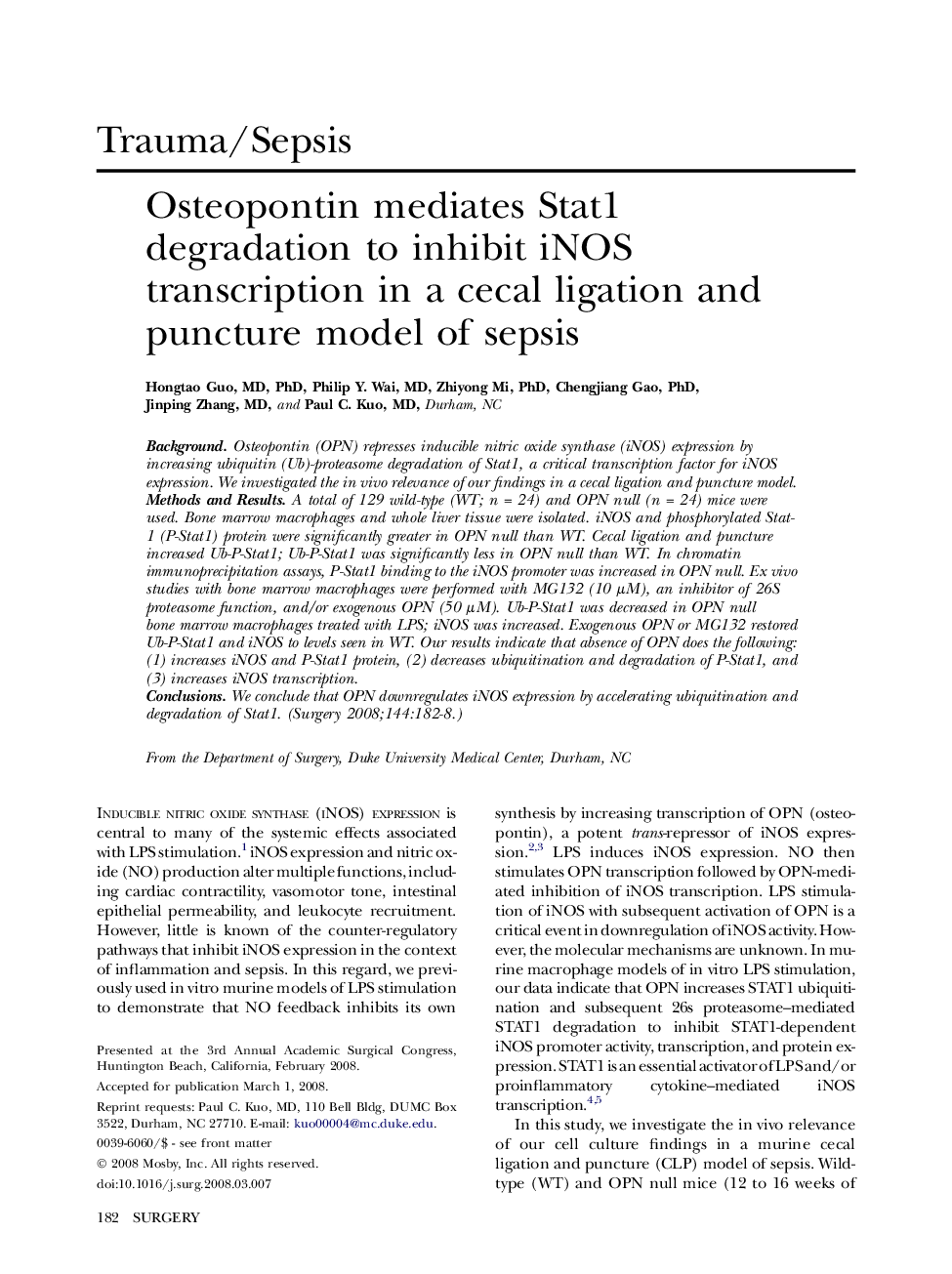| Article ID | Journal | Published Year | Pages | File Type |
|---|---|---|---|---|
| 4309452 | Surgery | 2008 | 7 Pages |
BackgroundOsteopontin (OPN) represses inducible nitric oxide synthase (iNOS) expression by increasing ubiquitin (Ub)-proteasome degradation of Stat1, a critical transcription factor for iNOS expression. We investigated the in vivo relevance of our findings in a cecal ligation and puncture model.Methods and ResultsA total of 129 wild-type (WT; n = 24) and OPN null (n = 24) mice were used. Bone marrow macrophages and whole liver tissue were isolated. iNOS and phosphorylated Stat-1 (P-Stat1) protein were significantly greater in OPN null than WT. Cecal ligation and puncture increased Ub-P-Stat1; Ub-P-Stat1 was significantly less in OPN null than WT. In chromatin immunoprecipitation assays, P-Stat1 binding to the iNOS promoter was increased in OPN null. Ex vivo studies with bone marrow macrophages were performed with MG132 (10 μM), an inhibitor of 26S proteasome function, and/or exogenous OPN (50 μM). Ub-P-Stat1 was decreased in OPN null bone marrow macrophages treated with LPS; iNOS was increased. Exogenous OPN or MG132 restored Ub-P-Stat1 and iNOS to levels seen in WT. Our results indicate that absence of OPN does the following: (1) increases iNOS and P-Stat1 protein, (2) decreases ubiquitination and degradation of P-Stat1, and (3) increases iNOS transcription.ConclusionsWe conclude that OPN downregulates iNOS expression by accelerating ubiquitination and degradation of Stat1.
